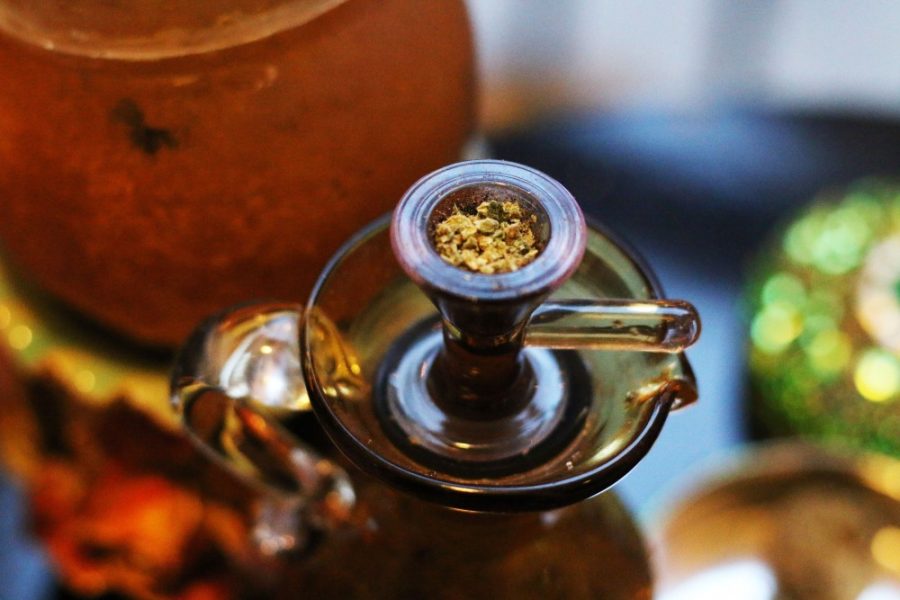Recreational marijuana is now legal in the state of Arizona, but on campus, it’s a bit more complicated.
Arizona Proposition 207 went into effect on Jan. 1, legalizing the possession and recreational use of marijuana for individuals 21 and older. The proposition also allows for the expungement of past marijuana-related offenses.
Though the state of Arizona has effectively legalized marijuana, it is still federally illegal under the Controlled Substances Act, where it is classified as a Schedule I drug. According to the university’s policy on illicit drugs, the University of Arizona is federally funded, and is therefore obligated to uphold the standards of the Controlled Substances Act.
So what are the consequences for cannabis possession or consumption on campus?
The Daily Wildcat spoke with Rene Arriaga, a public information officer for the University of Arizona Police Department, about the UAPD response to cannabis possession calls on campus property.
Arriaga stated that though the university is federally funded, UAPD acts as state police, meaning that they enforce Arizona state laws. If UAPD receives a call from a resident assistant in a campus residence hall about a student possessing or using marijuana, Arriaga said they will arrive on the scene to assess the situation.
If the student in possession of cannabis is under the age of 21, they will be charged with a petty offense and the Dean of Students will be notified. However, if the student is 21 or older and the amount that they possess is under the legal limit, UAPD simply advises them not to possess marijuana on campus property.
RELATED: Having a party this weekend? Don’t get your place red-tagged
However, guidance from UAPD has been unclear to many residence hall staff members across campus.
According to an RA who asked to remain anonymous, “the dynamic between [Housing & Residential Life] and UAPD regarding the marijuana policy has not been clear since Prop 207 has passed. Us RAs try our best to keep residents out of trouble with UAPD, but we have not had a clear response from Housing on how to handle this conduct violation due to the miscommunication between UAPD and Housing which makes our job harder when dealing with a marijuana incidents.”
Since marijuana is a legal substance in Arizona, Arriaga said there is not much they can do about these kinds of situations. For RAs, this can be frustrating.
The RA added, “before Prop 207, the RA role was to call UAPD if we saw or smelled marijuana without pinpointing rooms and allow UAPD to handle the incident. We understand that with Prop 207, there are new standards on how to handle the policy, but some RAs feel we have not had the support from UAPD to keep the campus and dorms drug free. We hope that there can be a resolution between housing and UAPD so RAs know the best way to handle these incidents and avoid any mistakes regarding the conduct process.”
In order to clarify the policy on cannabis from the perspective of Housing & Residential Life, the Wildcat spoke to Renee Skau, the associate director of student behavioral education for Housing.
“RAs are trained so when they smell the odor of marijuana, we try to have two people confirm it before we do anything else and try to pinpoint if there’s a location that it might be coming from,” Skau said. “And if they’re able to do that, then they make a call to UAPD and have UAPD come and respond. That’s been our protocol for multiple years.”
RELATED: Federal arrests made at Hub At Tucson student apartments
So despite the recent changes in legislation regarding cannabis use, Skau affirmed that Housing will most likely maintain its past policy surrounding marijuana on campus, citing the university’s federal funding obligations.
“Due to the Drug Free School and Communities Act, which is a federal act that basically states no federal institute or institution receiving federal funding can have drugs on campus, [cannabis] is still prohibited on campus,” Skau said.
Skau added that even those over 21 are advised not to possess cannabis within residence halls on campus due to the university’s policy regarding illicit substances. Those who are found to possess cannabis and are under the age of 21 will be subject to sanctions including mandatory completion of a drug education course or a hearing with their respective community director.
The times may have changed, but on campus, policy regarding cannabis possession still remains firm in its stance against federally illicit substances.
Follow Vic Verbalaitis on Twitter









